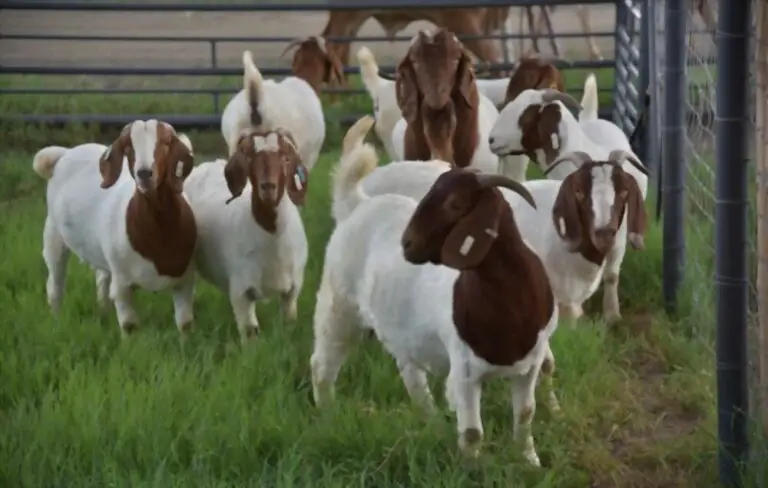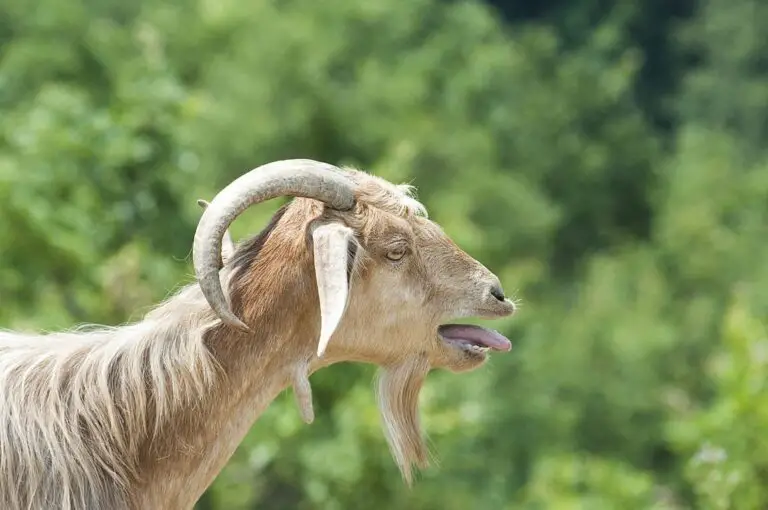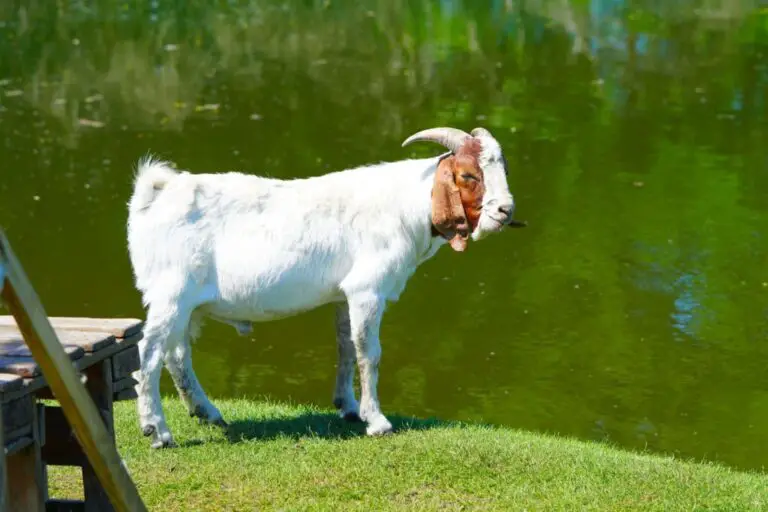CAN GOATS EAT MUSHROOMS?
Goats are herbivores, which means they eat only vegetation, their favorite food being grass. Goats are reputed to be willing to eat almost anything, including clothing, rubber bands, and even cardboard boxes.
They have this reputation because they like to walk around and sample various foods instead of grazing pasture like cows or sheep. While goats will not eat inedible material, they will chew on and taste just about anything resembling plant matter to decide whether it is good.
Goats eat hay, grasses, weeds, grain, and sometimes tree bark.
Mushrooms are fascinating things, or aren’t they?

Mushrooms are typically found near plants and may even use plants for stability as they grow. Although sometimes considered a plant or vegetable, mushrooms are not part of the Kingdom Plantae due to their edible nature and, therefore, are not plants.
They are a fungus containing ergosterol, similar in structure to animal cholesterol. Mushrooms are conspicuously umbrella-shaped. They are exceptional for their nutritional value, taste, versatility, and satiety.
For example, mushrooms are a good source of the antioxidant selenium; they naturally contain vitamin D and are a good source of several B vitamins.
Can Goats Eat Mushrooms?
Yes, goats can eat mushrooms. They can safely consume and tolerate common edible mushrooms germinating within the surrounding area or farm. But it should also be served to them in low quantity and moderation.
Mushrooms are good for goats. They pose a variety of health benefits for goats, including improved heart condition, healthy immune system, enhanced brain health, aid in weight loss, etc.
Mushrooms also contain some of the essential minerals needed by goats.
Benefits of Mushroom To Goats
Copper, a mineral found in mushrooms, helps maintain healthy bones and the body system of the goat. It is also essential for forming the red blood cells in the goat.
Mushrooms also contain magnesium which aids in maintaining the constant heartbeat of the goat. Magnesium also helps regulate blood pressure and blood flow. It also adjusts the blood sugar the glucose level in the body system of the goat.
Mushrooms also contain some antioxidants. This helps to improve the immune system of the goat. Other minerals found in mushrooms include phosphorus, selenium, thiamin, etc. All these minerals present in mushrooms make them good for the goat. Nonetheless, mushrooms should be served to the goat in moderation.
- How To Keep Goats From Getting Stuck In A Fence
- Can Goats Eat Daisies? (Answered)
- Can Hermaphrodite Goats Get Pregnant and Have Babies?
- Can Goats Eat Dog Food? (Answered)
- When Is It Too Late To Disbud A Goat?
Varieties of Mushrooms
The variety of mushrooms worldwide is wide, with a few very toxic. The dangerous varieties can be difficult to identify because they often have similar characteristics to non-toxic ones, such as colors and textures.
Therefore, it is not advisable to feed goats mushrooms grown in the wild since it’s challenging to pinpoint whether a specific mushroom is poisonous. When out foraging, you can find some wild mushrooms edible for goats but realize this is daunting.
It is best to avoid wild mushrooms altogether, as there have been many instances of foraging going wrong, making it a terrible mistake for the person doing so.
While some mushrooms are edible, some can lead to severe allergic reactions. It may lead to extreme gastrointestinal upset and even organ failure. Always prevent your goats from eating just any type of mushroom since identifying the toxic one from the edibles is difficult.
If your goat happens to ingest mushrooms, and you are not sure of the type, then look out for the warning signs for mycotoxins like apathy, anorexia, fatigue, diarrhea, etc.
Although there is no perfect way to identify toxic and non-toxic mushrooms, properly studying and learning about the mushrooms that commonly grow on your farm or area can help. Observe the appearance, color, gill, caps, and where the mushrooms grow.
Best Mushrooms for Goats

You can feed your goats any grocery-store mushroom or well-known edible mushroom. Portobello mushrooms are at the top of popularity among the mushrooms purchased from a grocery store. Portobello mushrooms are safe for animals, so it is nothing to worry about having your goats eat them.
Portobello mushrooms are best eaten in ways other than just the mushroom itself. They make an appetizing and great addition to any meal for your goats, providing them with excellent nutrients. Note that the simpler portobello mushrooms are prepared, the better it will be for your goats.

The white button mushrooms are the next popular option available for purchase. According to experts, white button mushrooms have an earthly flavor that animals love. They are packed with nutritional benefits and promote healthy digestion.
It is important to know that there are over 10,000 kinds of white button mushrooms, and not all are safe for your goat’s consumption. The white button mushroom obtained from a grocery store or the supermarket is safe for consumption.
Shiitake mushrooms are known for their medicinal use and benefits. Thoroughly cooked shiitake mushrooms are quite tasteful and very safe for your goats. Other mushroom varieties include the Cremini Mushroom, Maitake Mushroom, Reishi Mushroom, etc.
Conclusion
Raw mushrooms are not as nutritional beneficially as they are when cooked. However, goats can handle many mushrooms in raw form; cooked mushrooms are the preferred method to feed your goat. It is more beneficial to cook them as the nutritional contents are fully optimized when cooked.
Still, it’s necessary to understand how to cook mushrooms to ensure the meal served to your goats is safe. Grilling mushrooms in oil can do more harm than good for goats. Boiling them is a safer method for cooking them.
Remember, aimlessly feeding mushrooms you find to your goats is never a good idea. Mushrooms are one of the healthiest plants that your good can feed on. However, be careful about the type of mushroom you provide your goat, as some can be dangerous.
References







